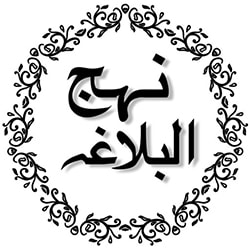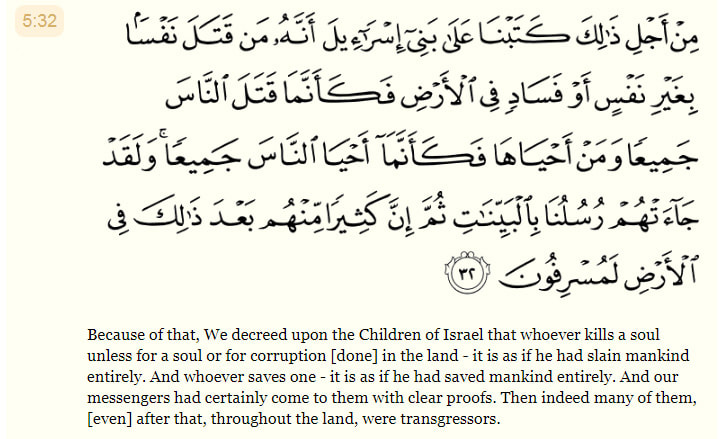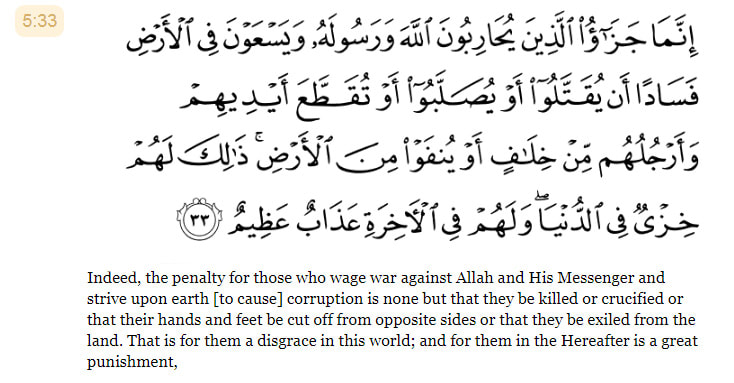 Dr Fadl Salih Al-Samarai a famous Arabic Grammarian in the Arab world compared the Arabic language to a highly sophisticated, state of the art computer alongside the English language (or any other language) which he compared to an obsolete and outdated computer. This might sound a bit biased considering he is an Arab, a Muslim and a famous Arabic Grammarian on Arab TV, however he has very good reason to make this comparison once we examine the Arabic language in a bit more detail. Before we can understand this comparison we need to understand the difference between a declining language like Arabic and a non-declining language like the English language. Let's take the following 3 simple sentences in both Arabic and English: 1. Khalid came جَاءَ خَالِدٌ 2. I saw Khalid رَأَيْتُ خَالِداً 3. I went with khalid ذَهَبْتُ مَعَ خَالِدٍ In all 3 sentences Khalid is written the same way in English regardless of what role it plays in the sentence. On the other hand you will notice the ending of the word Khalid in Arabic (خَالِد) changes depending on its role in the sentence (Khalid(un), Khalid(an) and Khalid(in) respectively). In the first sentence he is the doer of the action, in the second he is the object and in the third Khalid is followed by the word مَعَ (with). Most nouns and verbs in Arabic decline depending on their role in the sentence. Declension, as Dr Fadl explains gives the Arabic language an added dimension of being able to communicate what one wants to say in the most precise way possible that English and other non declining languages are incapable of doing. Comparison of one simple sentence Let us take a simple sentence in English and translate it to Arabic Muhammad gave Khalid a book أَعْطَى مُحَمَّدٌ خَالِداً كِتَاباً In English we are limited to the proper sentence structure which needs to be adhered to. If we were to rearrange the same words of the sentence in random order as follows: gave a Muhammad Khalid book It would make absolutely no sense. Also if we wanted to say the same sentence in another way we would need to bring in a new word or change a word with one of its synonyms. On the other hand, In Arabic we can use the same words (with the exact same function in the sentence) and rearrange them in 10 different ways: أَعْطَى مُحَمَّدٌ خَالِداً كِتَاباً مُحَمَّدٌ أَعْطَى خَالِداً كِتَاباً خَالِداً أَعْطَى مُحَمَّدٌ كِتَاباً كِتَاباً أَعْطَى مُحَمَّدٌ خَالِداً كِتَاباً خَالِداً أَعْطَى مُحَمَّدٌ كِتَاباً خَالِداً مُحَمَّدٌ أَعْطَى أَعْطَى خَالِداً كِتَاباً مُحَمَّدٌ أَعْطَى خَالِداً مُحَمَّدٌ كِتَاباً أَعْطَى كِتَاباً مُحَمَّدٌ خَالِداً أَعْطَى كِتَاباً خَالِداً مُحَمَّدٌ In all 10 sentences the same words are used with each word having the same function in the sentence. Each of the 10 sentences can be translated back into English as "Muhammad gave Khalid a book" Now the question will arise what is the point. Would this not make the other 9 forms redundant since they all have the same meaning. Actually they all have the same general meaning with a subtle difference in each based on the positioning of the words. Let's take some examples: أَعْطَى مُحَمَّدٌ خَالِداً كِتَاباًً This is said to one who did not know anything of the event (i.e. Muhammad giving Khalid a book) prior to hearing it. In other words, this is completely new information for the person hearing it. ******************************************************* مُحَمَّدٌ أَعْطَى خَالِداً كِتَاباً One is aware that Khalid received a book but is unaware of the person who gave it to him. So one would ask "Who gave Khalid the book?" and this would be the response. ******************************************************* كِتَاباً أَعْطَى مُحَمَّدٌ خَالِداً One is aware that Khalid received something from Muhammad but is unaware of what he gave. So one would ask "What did Muhammad give Khalid?" and this would be the response. ******************************************************* كِتَاباً خَالِداً ً أَعْطَى مُحَمَّدٌ One is aware that Muhammad gave something to someone but is unaware of what was given and to whom it was given to. So one would ask "What did Muhammad give and to whom it he give it to?" and this would be the response. And so on……. This is one example of how English seems quite powerless when compared with the Arabic language. The Miracle of the Qur'an Dr Fadl has written many books on the linguistic miracle of the Qur'an and I will try to share some of what he says. Much of his work is taken from Islamic scholars and grammarians of the past although he has added a substantial amount of his own insights. One aspect of the miraculous nature of the Qur'anic language lies in the precision of its words. As Imam al-Suyuti said in al-Itqan fi Uloom al-Qur'an, "It is possible to convey a single meaning with a variety of words, some more expressive than others. Likewise for the two parts – subject and predicate – of a sentence; each may be expressed in the most eloquent manner when taken alongside the other. Therefore, it is necessary [in good composition] to consider the overall meaning of a sentence, then to consider every single word that may be used to convey that meaning, and then to use the most appropriate, expressive and eloquent of those words. This is impossible for man to do consistently, or even most of the time, but it is well within the Knowledge of Allah [whose knowledge is boundless], and thus the Qur'an was considered the best and most eloquent of all speech…" We have courses available that deal with this aspect of Rhetoric related to sentence structures and the associated meanings associated with changing word positions. This is part of a big topic in Balagha (Rhetoric) known as I'lm Al-Ma'aani ( the science related to meanings).
by Nabeel Alkhalidy
3 Comments
The Quran in a number of places mentions the following: يَغْفِرُ لِمَنْ يَشَاءُ وَيُعَذِّبُ مَنْ يَشَاءُ He forgives whom He wills and punishes whom He wills To mention a few examples we have the following: and You will notice the order in the Quran with Allah SWT mentioning the forgiveness for his creation prior to mentioning his punishment. In reference to Allah's mercy and wrath we have the following hadeeth collected in Sahih Al-Bukhari and Sahih Muslim عن أبي هريرة، رضي الله عنه ، قال: قال رسول الله ، صلى الله عليه وسلم لما خلق الله الخلق، كتب في كتاب، فهو عنده فوق العرش: إن رحمتي تغلب غضبي". Abu Hurairah (May Allah be pleased with him) reported: The Messenger of Allah (ﷺ) said, "When Allah created the creatures, He wrote in the Book, which is with Him over His Throne: 'Verily, My Mercy prevailed over My Wrath" So therefore the word order in the ayah reflects the prevalence of his mercy over his wrath and punishment However, there is one instance in the Quran where punishment is mentioned prior to His mercy.In Surat Al-Maida we read: يُعَذِّبُ مَنْ يَشَاءُ وَ يَغْفِرُ لِمَنْ يَشَاءُ He punishes whom He wills and forgives whom He wills To understand why this is the case we need to look at the context. If we read the Ayaat prior We can understand why this is the case. We have the story of the Murder of Habeel who was killed by his brother and the revelation given to the Children of Israel regarding taking of another soul and saving a soul. The consequences of taking a soul is mentioned first and this is in line with mentioning punishment first in Ayah 40 Allah SWT then mentions the severe punishment of those who wage war against Allah SWT and His Messenger and sow corruption on the earth. and finally the punishment of the thief is mentioned In this context, punishment being mentioned prior to forgiveness was more appropriately sound . Appropriate sentence positioning is just one of the numerous considerations that one needs to take into account when authoring speech. Take into account that the Quran was speech that was spoken by the Prophet SAW over a 23 year period with no editorial process then one can begin to appreciate the Quran's divine nature and its superiority over all other speech.
 In Arabic, the word Balaagha is derived from the root verb ba-la-gha. Literally, it means: "to reach, attain, arrive at, or to get to a destination”.Technically, Balaagha is the art of reaching the utmost perfection in speech or writing style. It is a discipline that deals with clarity, correctness, and beauty in Arabic writing or oral expression. It is also a process, which enables one to distinguish between beautiful and ugly styles in expression. Balagha is the ability to produce speech that corresponds to and is in agreement with the contextual situation of which the listener is also an integral part of. Failure to observe context and/or the listener means failure to observe the desired aim of Balagha. It should be noted that every situation must have an appropriate speech response. This is stated in Arabic as follows: لكلِّ مَقَامٍ مَقال For every occasion there is an appropriate speech act ( and in in some cases silence is the best response). In Grammar (Nahw), we are concerned with grammatically sound text void of any grammatical errors whereas in Balagha we are, in addition to that, concerned with the contextual appropriateness of statements. The “correctness” of the text based on the rules of classical Arabic correspond roughly to what is referred to as fasahah which is a necessary component of Balagha. So while fasahah can exist with Balagha, the latter cannot exist without the former. To make a text contextually appropriate ( Baleegh) means that the speaker needs to modify and change his text as per context. Hence, it is the context that determines for example, how long the text should be, whether certain elements in the text should be mentioned or omitted, made definite or indefinite, qualified or unqualified, maintain default order or not etc. In addition, imagery, figures of speech (similes, metaphors etc), linguistic ornamentation and beautification such as rhyming and so on, all contribute to the quality and effect of the message on the listener. We have a number of courses found in the Advanced and Quranic studies sections which deal with this vast subject which will give students glimpses of the Quran linguistic miracle. |
Nabeel AlkhalidyHead teacher of the Sibaway Institute. Archives
February 2022
Categories
All
|
THE SIBAWAY INSTITUTE |







 RSS Feed
RSS Feed

